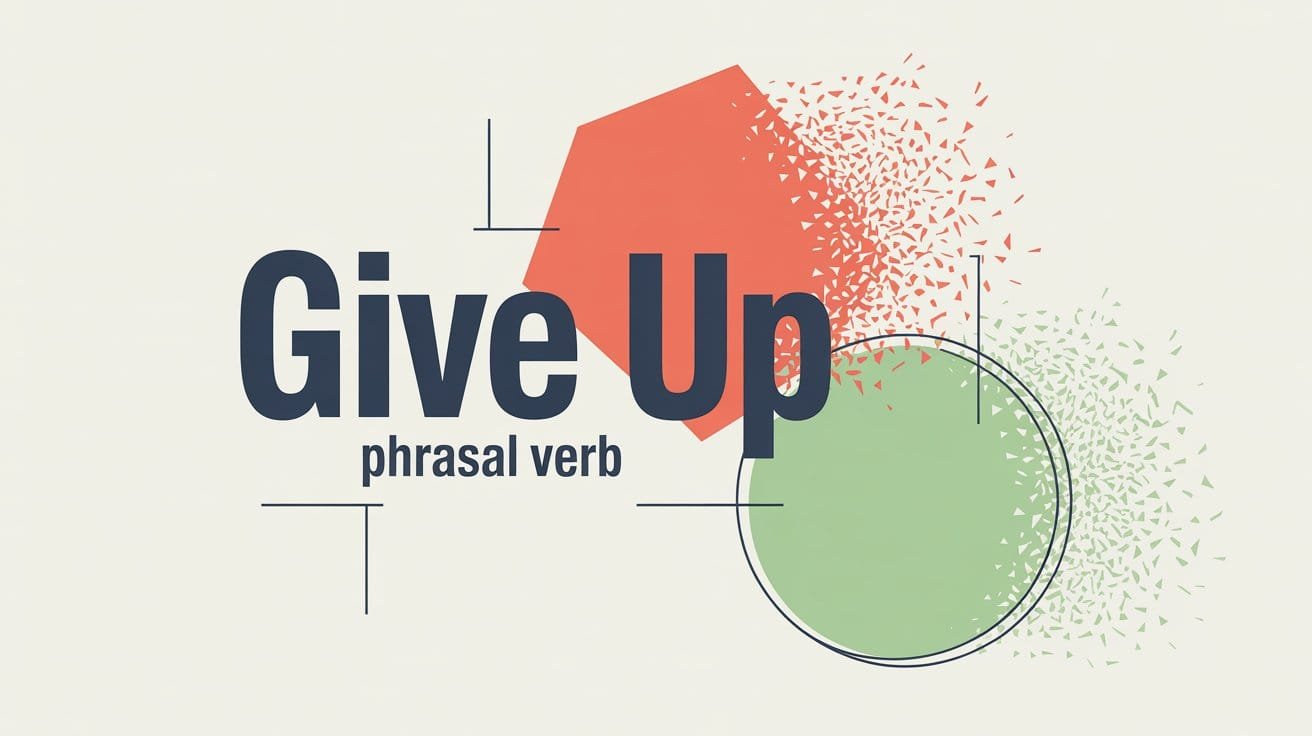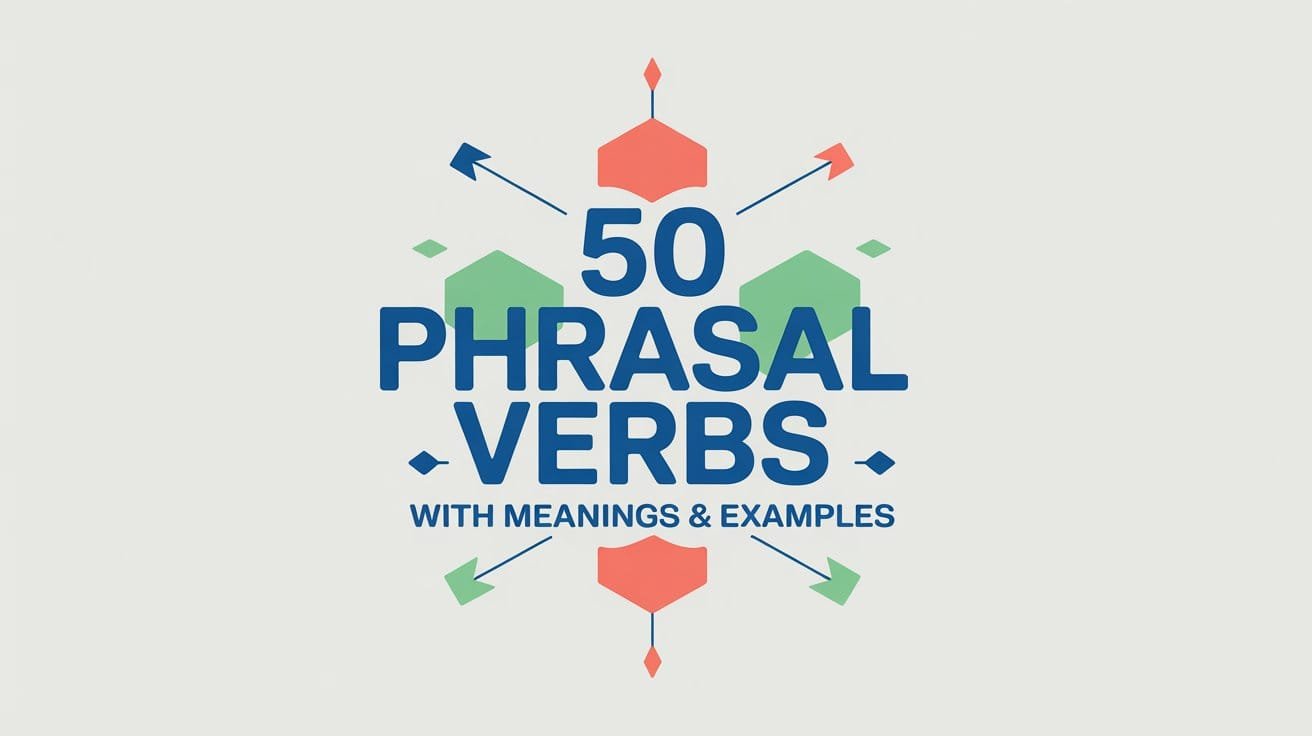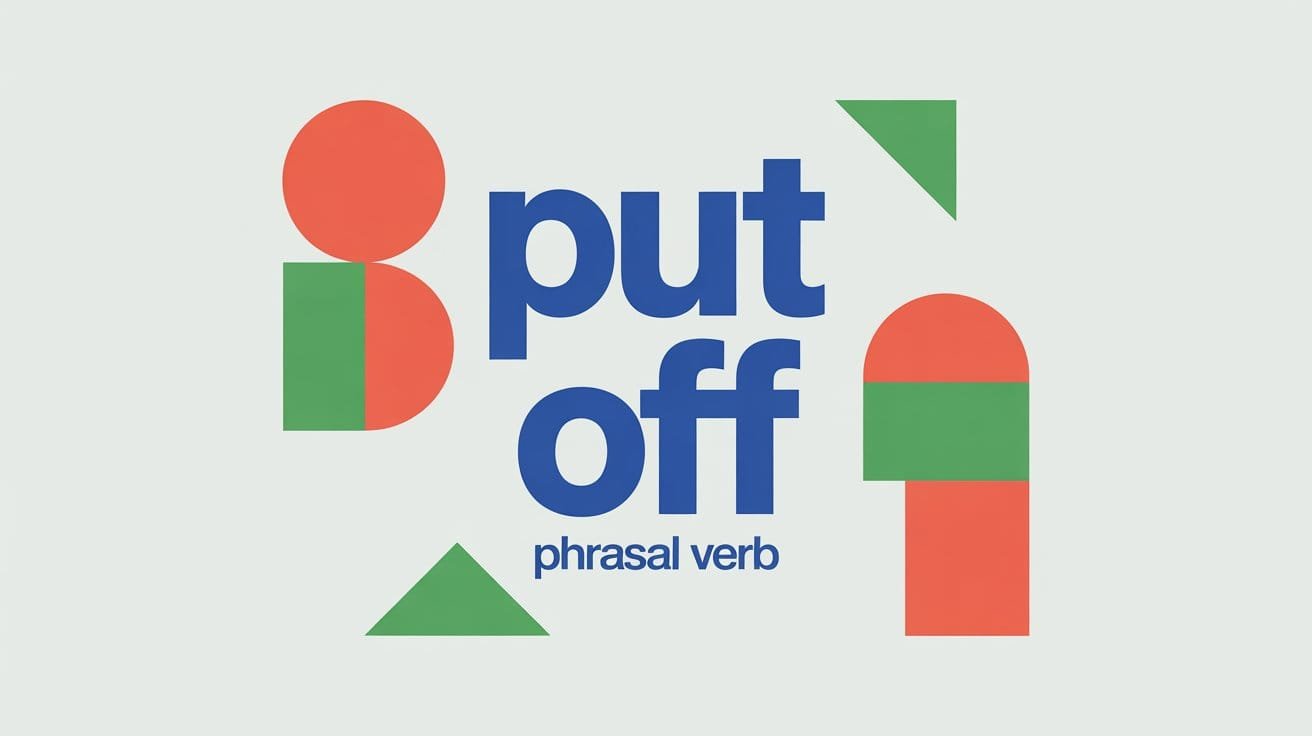The phrasal verb give up is a common expression in English that often signals a decision to stop doing something. Whether it’s quitting a habit, ending an effort, or letting go of a goal, give up captures that moment of surrender or change.
But like many phrasal verbs, its meaning can shift depending on the context. In this article, you’ll learn what give up means, how to use it correctly, and how its meaning changes across different situations.
What Does “Give Up” Mean?
The phrasal verb give up generally means to stop doing something, especially when it becomes difficult or no longer feels worth the effort. It’s widely used in both spoken and written English and can express anything from surrendering to quitting a bad habit.
However, the meaning of give up can shift based on context. It might refer to abandoning an effort, letting go of a person or belief, or formally yielding something to another. Understanding its use depends on the words that follow and the situation it’s used in.
Common Meanings of “Give Up” with Examples
To stop trying or surrender
Meaning: Used when someone decides to quit an effort or accept defeat, often after repeated attempts.
Examples:
- After three failed attempts, she finally gave up on fixing the printer.
- He doesn’t give up easily, even after setbacks.
- I nearly gave up halfway through the marathon, but I pushed through.
To quit a habit or regular activity
Meaning: To stop doing something habitually, often for health, discipline, or lifestyle changes.
Examples:
- She gave up smoking last year and hasn’t looked back.
- He’s trying to give up caffeine for a month.
- I’m planning to give up social media during exams.
To abandon someone or something
Meaning: To withdraw support or stop caring for someone or something.
Examples:
- He never gave up on his childhood friend, even during tough times.
- Don’t give up on the project—it still has potential.
- They had to give up their pet when they moved abroad.
To hand over or yield (formally or under pressure)
Meaning: To surrender something to another person, often by demand or necessity.
Examples:
- The thief gave up the stolen goods to the police.
- She was forced to give up her seat on the committee.
- They refused to give up any documents without a warrant.
How to Use “Give Up” in Sentences
The phrasal verb give up is a transitive phrasal verb that can also be separable, depending on the object. It’s commonly used in both casual and formal settings, but its structure must be handled carefully in a sentence.
It is a transitive phrasal verb
This means give up must have an object—it needs to act on something or someone.
Examples:
- She gave up the idea after much thought.
- I’ll never give up my dream of publishing a book.
- They gave up their claim to the land.
It can be a separable phrasal verb
With nouns, you can place the object between give and up, or after the phrase. But with pronouns, the object must go in the middle.
Examples:
- He gave up the fight.
- He gave it up.
He gave up it. (Incorrect)
Meaning depends on the context
The meaning changes based on the surrounding words, so look at what is being given up, and why.
Examples:
- “She gave up her job for family.” (quitting a role)
- “He gave up after two failed attempts.” (stopping effort)
- “They gave up the suspect to the authorities.” (yielding someone)
Synonyms of “Give Up”
The expression give up has several meanings, and its synonyms vary based on how it’s used. Below are commonly used alternatives for each sense of the phrase.
To stop trying or surrender
Synonyms:
- Quit
- Surrender
- Abandon
- Back down
- Relent
Example:
“She finally gave up on solving the puzzle.”
→ “She finally quit trying to solve the puzzle.”
To quit a habit or activity
Synonyms:
- Stop
- Drop
- Cut out
- Let go of
- Kick (informal)
Example:
“He’s trying to give up caffeine.”
→ “He’s trying to cut out caffeine.”
To abandon someone or something
Synonyms:
- Walk away from
- Leave
- Let go of
- Forsake (formal)
- Withdraw from
Example:
“They didn’t give up on the plan.”
→ “They didn’t walk away from the plan.”
To yield or hand over
Synonyms:
- Surrender
- Hand over
- Relinquish
- Turn in
- Give over
Example:
“The thief gave up the money.”
→ “The thief handed over the money.”
Related Phrasal Verbs with “Give”
The verb give combines with different particles to form several other useful phrasal verbs. Learning them alongside give up helps you better understand English expression and phrasing.
Give in
Meaning: To stop resisting; to surrender under pressure.
Example: After hours of arguing, she finally gave in to their demands.
Give away
Meaning: To donate or reveal something, often unintentionally.
Example: He gave away all his old clothes to a shelter.
Give out
Meaning: To distribute something or to stop functioning.
Example: They gave out free samples at the event.
Give off
Meaning: To emit or release something, usually a smell, light, or heat.
Example: The engine gave off a strange noise before stalling.
Give back
Meaning: To return something to its original owner.
Example: Please give back the book when you’re done reading.
Example Sentences with “Give Up” Phrasal Verb
- I was ready to give up, but her encouragement kept me going.
- They refused to give up until the issue was resolved.
- After hours of searching, we finally gave up and went home.
- He’s trying to give up late-night snacks.
- She gave up watching TV during weekdays.
- I want to give up drinking soda for good.
- We’re not going to give up on this idea just yet.
- He gave up the business after years of struggle.
- She never gave up on her brother, even when things were hard.
- They were forced to give up control of the building.
- The rebels eventually gave up their weapons.
- She gave up her passport at the border checkpoint.



